Mom’s Choice Awards is excited to announce another post in our interview series where we chat with the inventors, designers, publishers, and others behind some of our favorite family-friendly products.
Thanks for joining us today as we get to know more about our honoree, Claire N. Rubman, PhD, and her Mom’s Choice Award-winning book This May Be Difficult to Read! This engaging book offers a new and productive approach to reading—and lets parents learn about brain development and the comprehension skills that children ages 3, 4, and 5 should be focusing on rather than fixating on letters, sounds and rote memorization. As Dr. Rubman says of her reading program: “We parents deserve to have more fun with our children!”
If you’d like a blueprint for how children think, learn and perceive their world—and what kids really need in learning to read—this book can be a valuable resource. Join us for the full interview below.
MCA: Claire, thanks so much for speaking with us today! Before we discuss your award-winning book, please tell us about yourself.
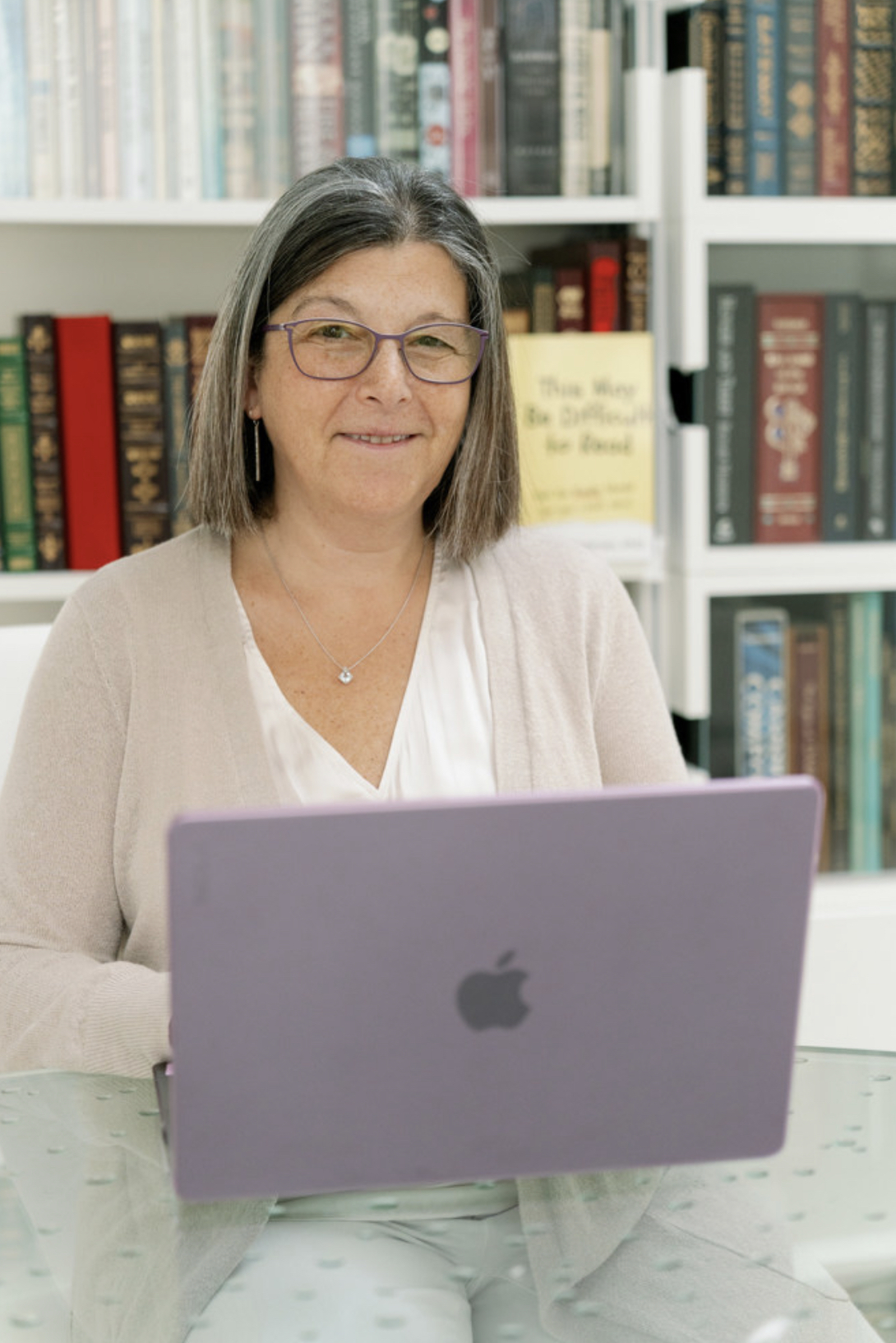
MCA award-winning authore, Claire N. Rubman, PhD.
I am a cognitive, developmental psychologist. I earned my PhD at Stony Brook University in New York. I moved to the USA over 30 years ago from Scotland. My three grown children are the light of my life. It has been such an honor to be a part of their lives and watch each of them grow into the resilient young adults that they are today.
I love to work with parents and educators to make a difference in the life of a child from a cognitive, emotional or social perspective. I give workshops and lectures in topics such as parenting, reading, discipline, kindergarten readiness, obesity, technology and cognitive development.
For over 20 years, I have taught at my local community college and I love it there. I love the diverse student population. I love the challenge to inspire each incoming freshman class, to motivate them to think and be intellectually curious. I love to empower them to make good career choices and to make a difference in their lives.
When I am not in the classroom, I love to walk, kayak, play chess, solve puzzles and laugh!
MCA: As you are a cognitive psychologist, what is it that inspired you to become a writer?
My path to becoming a writer began 16 years ago when I took a sabbatical to write my first book. It became a popular series in Texas Family Magazine instead of a published book! I also became their “Ask the Expert”—a job that I LOVED! Unfortunately, they went out of business when the “dot-com” bubble burst.
I didn’t write again until this year when I published This May Be Difficult to Read!
MCA: What was your inspiration for writing This May Be Difficult to Read?
I want to help parents. I want to offer them hope and encourage them to enjoy each moment of parenting just a little bit more. Although parenting can be a bumpy road, I want to assure them that it is those very bumps that can inspire creativity and resilience later in life.
There is so much fantastic research out there in the journals. It’s time to share that research with parents—to actually teach children how to read and for parents to enjoy that journey with their child.
MCA: I’m sure they would welcome this information. What are some of the key lessons parents will find in your book?
1 – Parenting is a journey—so instead of focusing on the end goal, enjoy the process. Enjoy every day, every success, every failure and every precious moment.
2 – Children grow and learn at their own pace. Let them set that pace.
3 – Children think differently from adults. Let them lead and learn to follow.
4 – Reading is the linchpin of all future learning, so let’s get it right!
5 – Saying the words out loud isn’t reading—children need to understand what is written.
6 – Background knowledge is a vital component of the reading comprehension process, so make adventures for your children…
7 – Raising children is a journey that takes 18 long years. If you fixate on the outcome, the payoff, the final product, then it will be a bittersweet moment when you say your “goodbyes” and send your child off to college. Try instead, to enjoy and savor each moment along the way.
MCA: Given the book’s innovative approach, what kind of response from readers have you received? Has any of it surprised you?
I have had such a phenomenal response to This May Be Difficult to Read. I seem to have tapped into a primitive parental fear, a deep-seated desire to have permission to slow down and a need to allow our children to fail.
So many parents have expressed relief. This relief comes in waves:
– Their child doesn’t have to be perfect.
– Their child doesn’t need to earn “A”s in everything.
– It’s ok for their child to mess up—it can be a real learning experience and a teachable moment.
– College isn’t the end goal, it’s just a step along the way.
– Our goal should be to develop autonomous and resilient children who are passionate, creative and not afraid to take risks.
MCA: You said there’s “so much more” that parents could do in preparing for their children for school—could you expand upon that?
Teach your child to be inquisitive
Encourage your child to explore
Teach your child to challenge the status quo
Teach your child to listen
Teach your child to follow directions
Teach your child to know how to ask when he, she or they doesn’t understand
Teach your child to advocate for himself, herself or themselves
Teach your child to play fairly
Teach your child to be kind to others
Teach your child to be considerate
Teach your child to love himself, herself or themselves
MCA: What a terrific checklist. Let me ask you this: The “50-plus years of research on how to teach children to read”—what are the points you’d most like to share with parents?
Reading involves active participation. It is not a passive activity.
Reading takes a great deal of cognitive capacity. Share the load with your children by reading to them.
Don’t mistakenly focus on the ABCs and “decoding.” Instead, enjoy the story and focus on sharing that.
Turn reading into a fun family conversation. Discuss the characters, the motives, the rationale.
Anticipate what might happen next. Make it fun!
Understanding the story is as important as being able to read the story.
Read the book to discover 50-plus years of cognitive developmental research that you really should have at your fingertips.
I’ve made it fun to explore, easy to read and enjoyable to engage in. It will allow you to think as a child thinks and read as a child reads. It’s an invaluable resource for all parents. Not least, it gives you a blueprint for how children think, learn and perceive their world.

MCA: If you could ensure readers of your book walk away with one main lesson, what would it be?
It’s a privilege and an honor to be a parent. Don’t waste it. Allow your children to unlock their true potential by inspiring them, empowering them and teaching them to be resilient, creative and true to themselves.
MCA: You say you took a sabbatical for some years until you published This May Be Difficult to Read … does your future hold more writing endeavors?
Oh, I do hope so! I plan to publish a parenting workbook this summer.
MCA: I’m sure we all look forward to seeing that when it comes out! Just wanted to wish you the best in all future endeavors. And thanks again for joining us today!
You can learn more about Claire N. Rubman and her award-winning book, This May Be Difficult to Read, by visiting her MCA Shop page.

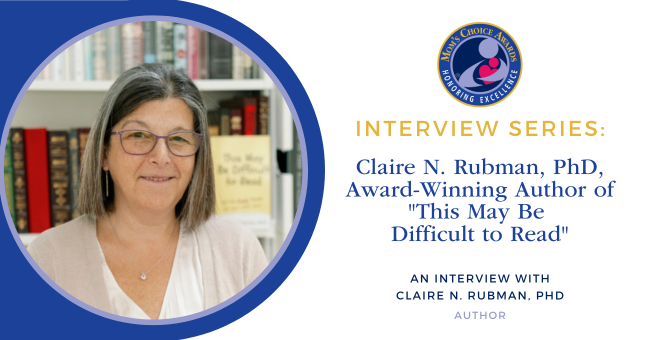
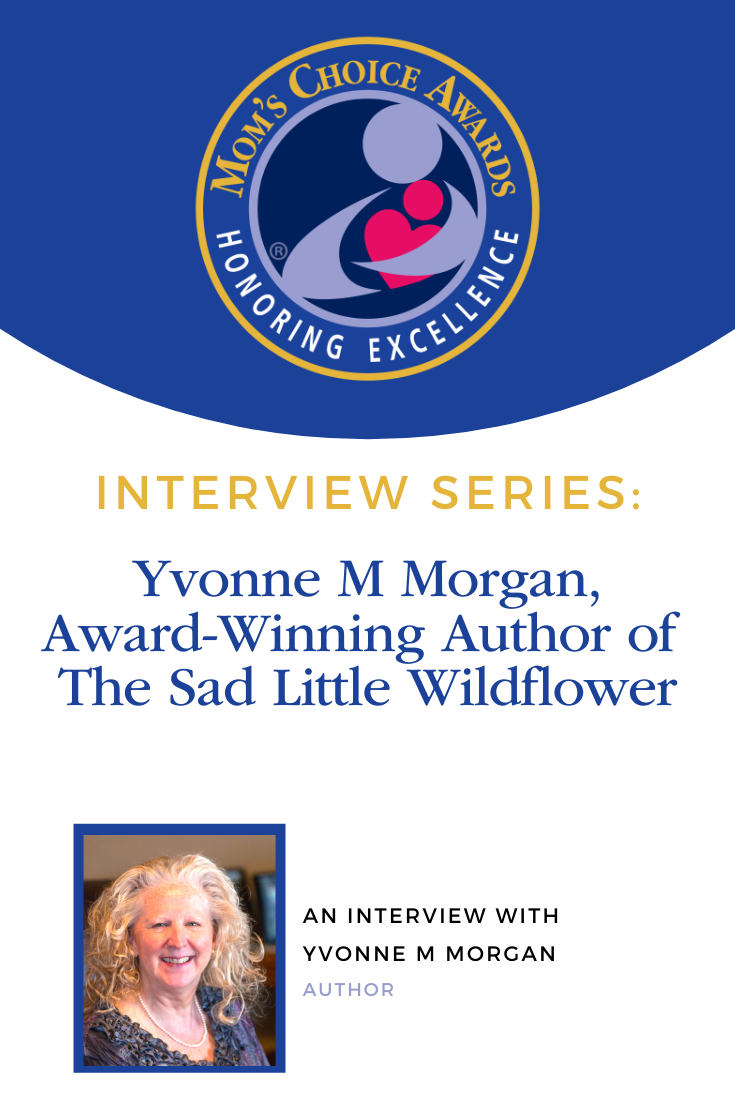
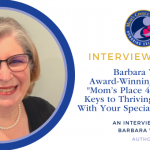
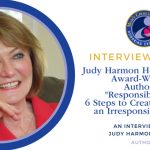
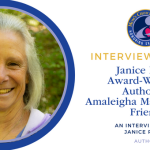
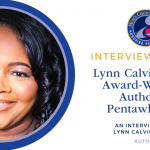
3 Comments on “Interview with Mom’s Choice Award-Winner Claire N. Rubman, PhD”
This interview was very interesting. A multi-talented author with insightful things to say about children’s learning processes.
Thank you for this extremely informative and thought-provoking article. It gives one much to think about. Thank you for sharing your thoughts and experiences with us.
I love this article and love that you interviewed her with great questions about writing. Writing can have its ups and downs so this really helps to know the struggle .